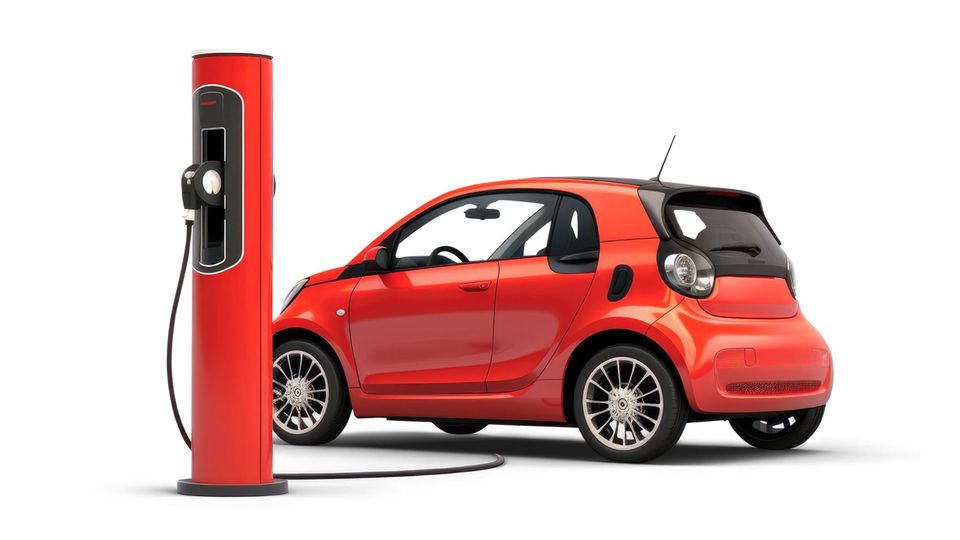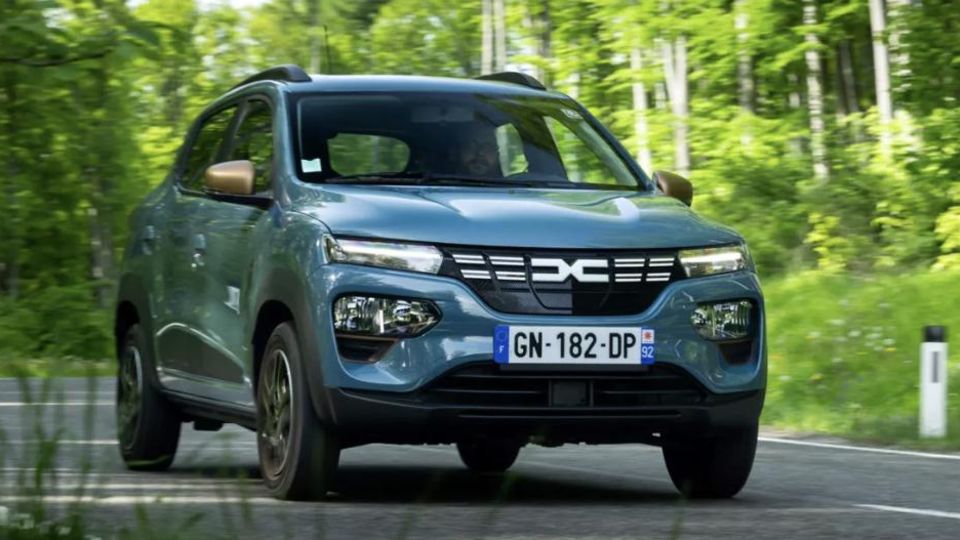study
A new electric car should “almost always” be more climate-friendly than an old used car
Old used cars may be cheaper than a new electric car – but their continued use is apparently not more sustainable.
© deepblue4you / Getty Images
The assumption is obvious: it will probably be more climate-friendly to drive an old used car instead of buying a new electric car, right? The Heidelberg Institute for Energy and Environmental Research sees it differently.
Anyone who decides to buy a new car and has the environment in mind will drive one Electric cars are always more sustainable than those with combustion engines. This has been proven and even the combustion-friendly Association of German Engineers (VDI) recently came to the conclusion that electric vehicles have the climate advantage after 90,000 kilometers (you can find out more here). And even that was subsequently questioned by experts, because they see the kilometer limit as being significantly lower – and accuse the VDI of having expected too high emissions from battery production and too low consumption values for combustion engines. You see the electric vehicles as having an advantage after traveling significantly less distance.
But what does it look like when you pit a still fit but old combustion engine against a new electric car? After all, the assumption that the vehicle that has already been built is naturally more sustainable than a new vehicle is obvious. The Institute for Energy and Environmental Research in Heidelberg (Ifeu) recently addressed this question in a study – and really dispels this myth.
If you want to protect the environment, you should switch to an electric car as quickly as possible
Ifeu comes to the following conclusion: “Deciding on an electric car is almost always the more climate-friendly option when you look at the entire life cycle of new vehicles.” Further: “Even if the balance varies slightly depending on the balance limit drawn and individual usage patterns, from a climate perspective, switching to the new electric car almost always makes more sense than continuing to drive the old combustion engine. And: It is even better for the climate to switch preferable to delaying.”
Anyone wondering where the “almost always” comes from will become wiser as the study concludes. It says: “When it comes to cars, only pronounced ‘garage cars’ with annual mileage of less than 3,000 km are still an exception today.”
The reasoning is relatively simple: It is true that producing an electric car is significantly more polluting than building a combustion engine, but with the latter, 85 percent of the emissions are created first; with an electric car, the environmental impact drops to almost zero by the time it is scrapped – assuming that The electricity from the charging station comes from renewable sources. In the “Zeit” magazine, Ifeu scientist Hinrich Helms illustrates this fact with the sentence: “It’s like an old lignite-fired power plant. It won’t be sustainable just by staying on the grid for as long as possible.”
New models
Cheaper electricity: These cheap electric cars are expected to come onto the market soon
This is also the reason why switching to an electric car always has a positive impact on the environment, according to the study. True to the motto: the faster, the better. With an annual mileage of 13,750 kilometers, the old combustion engine is overtaken after just five years – and then has no chance of winning the race for the lowest emissions. The Ifeu assumes a consumption of around seven liters of gasoline per 100 kilometers, which is still very conservative, especially for older vehicles. Example: An old VW Lupo with an automatic transmission easily consumes eleven liters in city traffic. In this comparison, the institute gives electric vehicles 21 kilowatt hours per 100 kilometers, which is also quite low, but realistic for most vehicles outside of extreme weather conditions.
New vehicles are collected after 44,000 kilometers
When it comes to new vehicles, the Heidelberg Institute for Energy and Environmental Research also provides figures. According to this, an electric vehicle has an advantage after just 44,000 kilometers and has compensated for its additional emissions during production.
“Over the average lifespan of a car, which is now 220,000 kilometers, the total emissions of an electric car built in 2024 – including production, maintenance, disposal and recycling – are around 48 percent lower at the end of life than of a gasoline car,” write the researchers.
What both VDI and Ifeu exclude is the monetary dilemma. Of course, people will continue to drive their old used cars if the purchase of a new electric car is not financially feasible. Both studies are by no means concerned with the question of what is immediately cheaper for the wallet, but only with which vehicles have a greater impact on the environment.
But here too there is good news for aspiring electric car drivers: numerous affordable new cars have been announced for the coming years (find out more here) and after the end of government funding, manufacturers are overflowing with discounts and discounts (find out more here). It is only a matter of time before the prices of both drive classes are almost identical – and then the choice should no longer be so difficult when a new purchase is due.
source: ifeu, Automobile Week, Time




